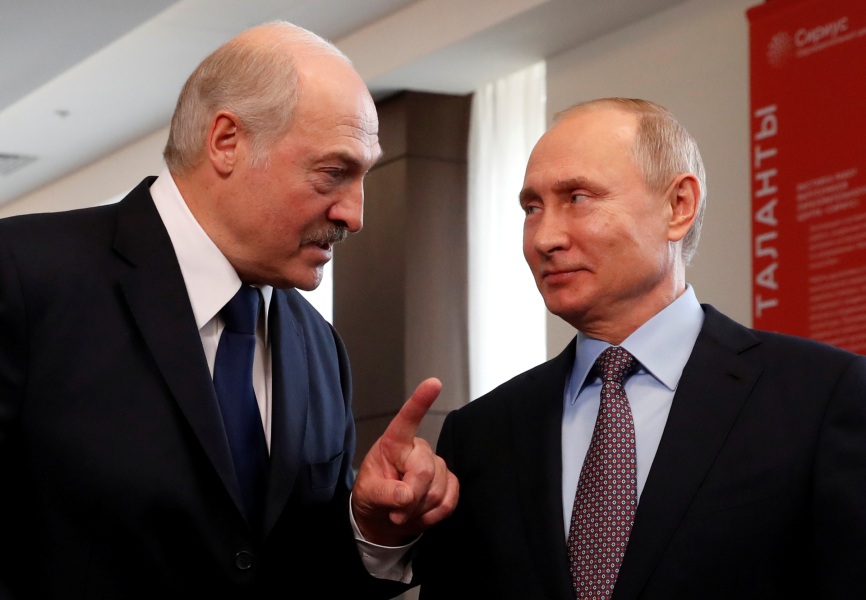Another government friendly to Moscow is in trouble. As
Belarus continues to be gripped by protests following rigged presidential elections on 9 August, many expect to see Russia's Vladimir Putin intervene. Alexander Lukashenko, Belarus' president for the past 26 years, certainly hopes Putin steps in to bail him out. He would be better off spending that time packing his bags.
Russia's invasion of Georgia in 2008 and Ukraine in 2014 and the enthusiasm with which it jumped into the Syrian morass have given the impression in recent years that Putin has a very low threshold when it comes to meddling in the affairs of others. But Belarus is a different story.
Instead of looking to Georgia and Ukraine, it is more instructive to look at the case of Armenia, where another Moscow-friendly government fell in 2018. Rather than marching in to ensure its preferred candidate held on to power, Moscow opted to work with Armenia's opposition to negotiate a political transition in the country; Russia got to keep its outsize influence in Armenian politics as a result, and at minimal cost.
Putin is gunning for the same outcome in Belarus. It's made possible by the fact that the protests in Belarus aren't anti-Russian or pro-Western, as the Ukraine protests were, but specifically anti-Lukashenko. According to polls out of MGIMO University, as recently as November nearly 90% of Belarusians wanted to be on some kind of friendly terms with Russia (10% preferred a more “neutral” relationship; just 0.2% wanted relations to be “hostile”). Putin wants to keep it that way. Sending in Russian troops uninvited by those currently on the streets would only serve to make enemies of the Belarusian people, and Moscow already has enough of those. Moscow has said that it would deploy troops to Belarus in case of foreign interference, but that should be read more as a warning shot against NATO and Western interference in Russia's orbit of power than an intention to use the military.
For Putin, stepping in to prop up Lukashenko would also put Russia in the crosshairs of major EU and US sanctions, an outcome Moscow would have been desperate to avoid even before the coronavirus began squeezing the global economy. At this point, the Russian economy is in no shape to shoulder the political and economic costs of further military adventurism.
If Lukashenko were a particularly loyal or competent Russian ally operating out of Minsk, Putin might have been more tempted to intervene decisively. But that ship has sailed. At this point, the smart money is on Russia's working behind the scenes on a brokered political transition to ensure it keeps its privileged position with the Belarusian government, no matter who emerges from the political fray.
Of course, just because this is Moscow's preferred outcome doesn't mean a Russia-approved political transition will play out. It's possible that a transfer of power comes in spite of Russia's best efforts to control the outcome, in which case the eventual government in Minsk could well tilt toward Brussels rather than Moscow, a worst-case scenario for Putin. It's also possible Lukashenko manages to hold on to power so long as his security services remain loyal, leading to a Venezuela-like situation on Russia's own border, an outcome that would be as tragic as it would be ironic given Russia's past support of Venezuela's Nicolas Maduro.
But as the protests intensify, both of these outcomes are long shots. The only longer shot is that Russia's military will step in.
This originally appeared in the 31 August 2020 issue of TIME. Learn more:

 Belarusian President Alexander Lukashenko and Russian President Vladimir Putin. REUTERS.
Belarusian President Alexander Lukashenko and Russian President Vladimir Putin. REUTERS.
